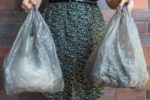Plastic Bag Ban in Queensland Gets Green Light as Cash-for-Cans Scheme Introduced

Queensland shoppers will no longer be able to get plastic bags at the supermarket but will be able to cash in their cans and bottles under laws passed overnight. The ban on single-use plastic shopping bags, including degradable and biodegradable bags, will take effect from mid-next year. The bill was passed with bipartisan support, with the Opposition saying it had initially proposed the changes. Environment Minister Steven Miles said some retailers were proactively banning the supply of lightweight plastic shopping bags in advance of the ban. Retailers who flout the laws face up to a $3,000 fine. Designated container refund …













